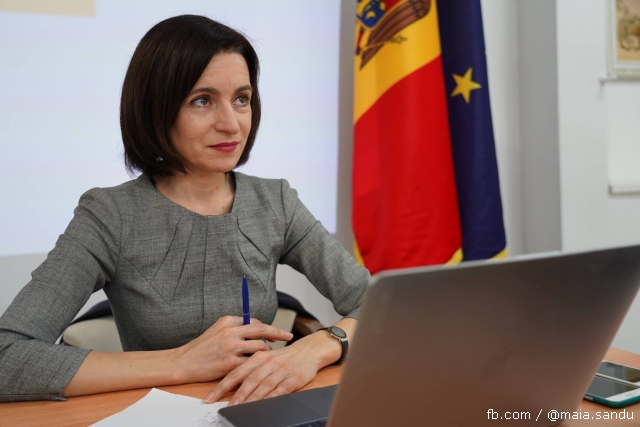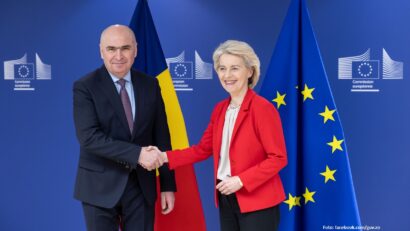The EU focuses on the developments in the Republic of Moldova
The European Union wants to see at work the new government of the ex-Soviet Republic of Moldova

Bogdan Matei, 18.06.2019, 13:55
Everybody in Chisinau, Bucharest and Brussels was relieved after the
hallucinating political blockage had been removed without violence. After for
one week two parallel governments had assumed legitimacy and accused each other
of coup d’etat and the Constitutional Court had announced the dissolution of
Parliament and the president’s impeachment, the supporters of the controversial
oligarch Vladimir Plahotniuc ceded power and started to expatriate, Plahotniuc
in the first place. Pavel Filip’s cabinet made up of Plahotniuc’s Democratic
Party announced it entered the opposition. The Constitutional Court cancelled
its own rulings.
The pro-Russian socialist president Igor Dodon resumed his
prerogatives. The government headed by the pro-European Maia Sandu, supported
by the Socialists, which had taken office on June 8th, could finally
exert the power. In one of her first statements, Maia Sandu promised that the
Republic of Moldova would go ahead with the implementation of the EU
Association Agreement with the Republic of Moldova concluded in 2014. Brussels
has cautiously hailed that commitment. EU High Representative for Foreign
Affairs and Security Policy Federica Mogherini has urged the new authorities in
Chisinau to carry out the reforms laid down in the Association Agreement if
they want to get the EU’s support. We will
remain very vigilant on the next steps and encourage our Moldovan friends to
keep a positive and concrete commitment to work in the direction of the reform
agenda that the country has waited for so long, and I believe it is
now time for them to deliver on that.- Mrs. Mogherini said.
The European
Commissioner for European Neighbourhood Policy and Enlargement Negotiations
Johannes Hahn said that next week he would go to Chisinau for talks with the
new government on all sensitive issues. Johannes Hahn stated that
in case of need the European Union would render a quick support and consultancy
as soon as the new Government met the country’s earlier-taken conditions and as
the new Government ensured the observance of the supremacy of law, media
pluralism and implemented a judiciary reform. Deeply worried about the
situation in the neighbouring state where three million speakers of Romanian
live, one million of them being Romanian citizens, Bucharest was happy to see
the peaceful settlement of the crisis. President Klaus Iohannis, Prime Minister
Viorica Dancila and Foreign Minister Teodor Melescanu have reiterated Romania’s
support for the normalization of the situation in the Republic of Moldova and
the fulfillment of its European aspirations. However, pundits are skeptical
about the new left-right wing rulers. Described by many as against nature,
the pro-Russian socialists’ association with the pro-Europeans called up a similar alliance made 15 years ago
when the former pro-Russian communist party made a government alliance with
their fiercest opponents, the anti-Soviet Christian-Democrats advocating the
reunification with Romania. A few years later, that alliance was toppled by a
violent people’s revolt. Today there are no communist and Christian-Democrat
MPs.
(Translated by A.M. Palcu)






























